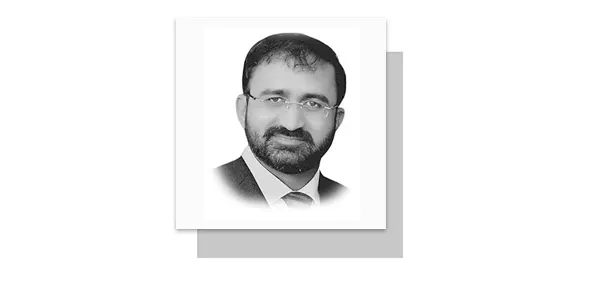ISLAMIC Globalization examines the Muslim world’s growing importance in creating a more inclusive international system that is increasingly multipolar and multicultural. The system describes an emerging pattern of Islamic globalization as a series of transformations in four inter-related areas — pilgrimage and religious travel, capitalism and Islamic finance, democracy and Islamic modernism and diplomacy and great power politics. This emergence integrates the disciplines of religion, politics, economics, law and international relations highlighting developments in the Middle East, South Asia, South-East Asia and Africa. It provides new insight into the rapidly growing ties between China and the Islamic world, exploring their likely impact on the balance of power in Eurasia and beyond.
These are long-term trends that are gaining force throughout the Islamic world as a whole. They suggest far more positive and encouraging views of diverse Muslim societies in Asia and Africa than we are accustomed to hearing from journalistic accounts that focus on terrorism and the daily crises of the Middle East. By adopting a wider historical and geographic perspective, we can see that Muslims are some of the most active participants in globalization and that they are contributing to its creative adaptations in a wide variety of non-Western settings. It is fitting to speak of Islamic globalization because religion has stimulated much of the progress in Muslim countries and because the growth of capitalism and democracy is promoting more open-minded approaches to religion and greater interest in balance-of-power diplomacy.
These interaction effects give Islamic globalization an additive and cumulative dimension—perhaps even a potential for self-sustaining innovation if it engages with similar experiments in other non-European civilizations, particularly China, Pakistan, India and Latin America. Like reformers in other great world civilizations, Islamic modernists frequently move back and forth between conflicting assessments of tradition and its future relevance. Many view Islamic globalization as the natural evolution of a living multicultural heritage with ancient roots. Others insist on a revolutionary break with repressive authority and Western neocolonialism. And many others see themselves as continuing a historic pursuit of ideals that have animated and eluded every generation since the dawn of Islam.
Nonetheless, educated Muslims generally agree that Islam rests on a vast body of learning and general principles that is open to constant reinterpretation by all believers rather than a handful of fixed rules that can be monopolized by a clerical caste or an authoritarian state. Against this background of socio-economic development and politico-religious reform, the leading countries of the Islamic world have joined the mainstream of modern life and are exerting a profound and growing influence in every aspect of global affairs. Turkey, Egypt, Iran, Saudi Arabia and the Persian Gulf States, Indonesia, Malaysia, Pakistan and Nigeria—these are the current and emerging powers that are carving out major roles not only in their neighboring regions but throughout the Muslim world and the wider international system. In varying degrees, each of them has experienced a series of remarkable—and often tumultuous—transformations in nation-building, economic development, social re-stratification, cultural pluralism, democratic reform and foreign policy.
Their economies have industrialized and diversified, they have become firmly integrated into international trade and financial networks and they dominate the land and sea lifelines of natural resource supplies that sustain both developed and developing markets. Their societies are highly urbanized and educated, spawning a new generation of middle-class consumers, entrepreneurs and professionals who are spearheading a vigorous associational life and a more assertive civil society. Democratic reforms and revolutions have toppled dictators, monarchs and military rulers spreading multi-party competition and parliamentary rule in one country after another. Cultural and religious modernization have severely eroded the authority of traditional religious leaders, particularly of the ‘ulema (classical legal scholars), promoting broad individual freedom to interpret Islamic texts and heritages for lay people of all ages and genders with modern education in the sciences, the professions and the business world. Islamic nations are both strengthening and challenging the current architecture of international organizations and diplomacy.
In addition, they have created unique international regimes to manage the global surge in pilgrimage and the transnational boom in Islamic financial services. Both individually and collectively, these countries have already become a key force in global capitalism and diplomacy. They lead efforts to mediate regional conflicts that can quickly escalate into international confrontations. In an increasingly multipolar balance of power system, they operate as swing votes and quasi-allies of the Great Powers, particularly the United States and China. And they are bound to play a pivotal role in a wide range of future efforts to reform global governance, including banking regulation, controlling climate change, reorganizing the United Nations Security Council, limiting nuclear proliferation and ensuring equitable access to vital resources of energy, water and food. The Hajj has become much more representative of the diversity and modernity of Muslim societies, more enmeshed with a global market, technology and migration flows, and more deeply politicized at both national and international levels. While discussing Islam, we must keep in mind that diversity and inclusiveness in an emerging trend of Islamic Globalization is the real glowing face of Islam.
— The Writer is PhD in Islamic Studies from NUML Islamabad and Author of Five Books & Thirty Five Research Publications.
Email: [email protected]









